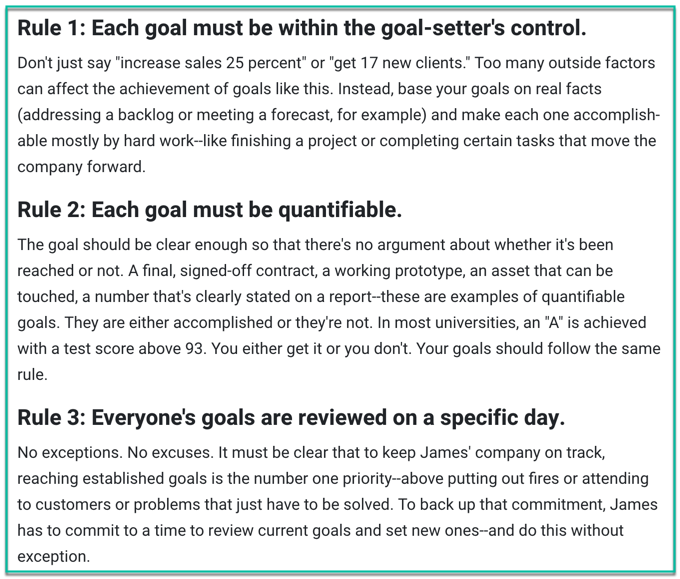What is Performance Management? 9 Strategies For Your Small Business
Running a business isn’t always about making big money, traveling the world, and reaping all of the benefits it has to offer. Sometimes there are less exciting tasks and components involved in the day to day operations of these businesses — especially if you are running a big company with employees.
One such area that large business owners and corporate teams will have to focus their efforts on are team evaluations and performance management. Evaluations at the end of the year can be daunting and stressful for you, your supervisors, and your employees.
Performance management doesn’t have to be a dark, looking matter in a business. In fact, it should be something that continuously encourages growth and improvement while handling negative matters in a professional manner.
Are you asking yourself right now, “What is performance management?” It’s a way of creating an ideal work environment to reach optimal productivity. It’s definitely something you need to incorporate into your small business.
Below are 9 strategies of performance management to help your business succeed. Keep reading for more.

1. Accurate Job Descriptions
Whether you’re in the process of hiring or have had a set staff for a while, keep job descriptions up-to-date and accurate will help things to run smoothly and effectively. Everyone needs to know what is expected of them.
Not only does this help things get done, it can highlight certain skills in individuals. Allowing everyone to be in a position where they can use their best skills will create a more positive work environment. If people are unhappy with their job or are experiencing unexpected tasks, it could cause stress.
Sit down and update job descriptions. Then meet with your employees and explain what is expected, and allow them to ask questions and voice concerns.
2. Consistently Review Goals
Time is precious, whether you are an employer or an employee. Make the most of your time and consistently go over goals and milestones with everyone on an individual basis.
Not going over your goals until the end of the year could open up space for issues that could have easily been prevented. Plus, not reviewing goals can cause people to lose interest or become fearful of the unknown.
It’s always best to keep everyone on the same track, and consistency makes for better performance management. If you need help staying on track, don’t be afraid to turn to outside help — check it out!

3. Don’t Be Afraid to Praise
People are more inclined to work harder at their job when they know they will receive praise for it. Giving praise to an employee doesn’t make you look weak, it shows you care about good performance management.
If you notice an individual making great efforts at his or her job, don’t hesitate to throw them a compliment. Make sure you are being sincere because everyone loves a genuine compliment.
Want to go the extra mile? Get to know your employees personally. Tell your employee how proud you are of them for doing a 5k the past weekend.
4. Offer Payment for Work
Compliments are great, but one of the best motivations for anyone is money. Let’s face it, everyone wants to make more money.
A great strategy for better performance management is creating monetary rewards for the employees going beyond their goals. For example, offer them a small bonus every time they exceed a weekly sales goal.
It doesn’t have to break the bank for your business, but you’d be surprised what people will do for an extra 10 dollars.
5. Critique in Private
One of the most humiliating moments in performance management for any employee is being critiqued or punished in front of large groups. It lowers their self-esteem and creates an uncomfortable atmosphere for everyone.
If a problem needs to be addressed, schedule a time to talk with the individual. Don’t intimidate them or scare them into thinking they are about to get the automatic boot. Approach them by stating the issue and give them a chance for any explanation.
As reported by Motley Fool, there are three big reasons why you will want to avoid this:
- You’ll alienate the employee you call out — and possibly the rest of your team
- You’ll be less effective
- You’ll come off harsher than you probably mean to
It’s also a great idea to come to the meeting with possible solutions, and ask them for solutions that may motivate them to do better next time.
6. Highlight Top Performers
When setting goals for your small business, keep track of who is meeting the goals. If you notice certain individuals consistently meeting goals, make a point to highlight their successes. This will create a friendly sense of competition to motivate others to work harder.
You can set up a whiteboard in the communal area of your offices and write the names of top performers. If you wanted to create a sense of fun and goofiness in your performance management, you can purchase funny hats or ribbons for top performers to wear.
When it comes to overall goal setting for your business and how to highlight top performance, Inc has the following recommendations.

7. Establish Open Office Hours
Feedback is only effective when it goes both ways. To create an open and inviting atmosphere for your employees to voice concerns or ask questions, establish open office hours, giving them a chance to walk into your office and talk.
This will give you a better view of what’s going on in the business and gives your employees plenty of chances to ask for help or fix an issue. Being open to feedback gives you more respect and boosts the office atmosphere.
If office hours become extremely popular, give everyone a time limit and request they come with notes. This will help you stay on track and keep things efficient.
8. Keep Records
When it comes to the time for evaluations, you need to have quantitative evidence for your evaluation. Throughout the year, keep records of each employee.
Note some of their problem areas as well as highlight what they are good at. Your employees will appreciate a performance management system with solid evidence and support.
Also, it can be easier for some employees to make adjustments for the future if they can visually see records of their past performance.
9. Eliminate the Weak Links
As harsh and scary it can be, eliminating the individuals causing the problems will be the best for your company. With this said, don’t storm into your office one day and start firing people, but if someone is not improving even after speaking with them, it’s okay to let them go.
By letting someone go, you are opening up the opportunity for someone with stronger skills and a greater passion for the job role.
If someone is constantly creating drama or a negative work environment for everyone else, let them go. You don’t want one person ruining it for the rest.

Discover What Is Performance Management at It’s Best
If you have been sitting around and thinking, “What is performance management?”, look no further. It can seem like a tall task to take on, but with preparation and consistency, it can be simple.
Make sure to sit down and create a plan for performance management. Address concerns, praise the success, and create an atmosphere of productivity and diligence.
Do you need more help and tips on your workplace or a boost in online marketing? Check out this article on 101+ expert growth tips!



